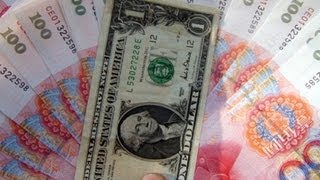As of January 2011, foreigners owned $4.45 trillion of U.S. debt, or approximately 47% of the debt held by the public of $9.49 trillion and 32% of the total debt of $14.1 trillion. The largest holders were the central banks of China, Japan, Brazil, Taiwan, United Kingdom, Switzerland and Russia. The share held by foreign governments has grown over time, rising from 13% of the public debt in 1988 to 25% in 2007.
As of May 2011 the largest single holder of U.S. government debt was China, with 26 percent of all foreign-held U.S. Treasury securities (8% of total U.S. public debt). China’s holdings of government debt, as a percentage of all foreign-held government debt, have decreased a bit between 2010 and 2011, but are up significantly since 2000 (when China held just 6 percent of all foreign-held U.S. Treasury securities).
This exposure to potential financial or political risk should foreign banks stop buying Treasury securities or start selling them heavily was addressed in a June 2008 report issued by the Bank of International Settlements, which stated, “Foreign investors in U.S. dollar assets have seen big losses measured in dollars, and still bigger ones measured in their own currency. While unlikely, indeed highly improbable for public sector investors, a sudden rush for the exits cannot be ruled out completely.”[78]
On May 20, 2007, Kuwait discontinued pegging its currency exclusively to the dollar, preferring to use the dollar in a basket of currencies. Syria made a similar announcement on June 4, 2007. In September 2009 China, India and Russia said they were interested in buying International Monetary Fund gold to diversify their dollar-denominated securities. However, in July 2010 China’s State Administration of Foreign Exchange “ruled out the option of dumping its vast holdings of US Treasury securities” and said gold “cannot become a main channel for investing our foreign exchange reserves” because the market for gold is too small and prices are too volatile.
According to Paul Krugman, “It’s true that foreigners now hold large claims on the United States, including a fair amount of government debt. But every dollar’s worth of foreign claims on America is matched by 89 cents’ worth of U.S. claims on foreigners. And because foreigners tend to put their U.S. investments into safe, low-yield assets, America actually earns more from its assets abroad than it pays to foreign investors. If your image is of a nation that’s already deep in hock to the Chinese, you’ve been misinformed. Nor are we heading rapidly in that direction.”


